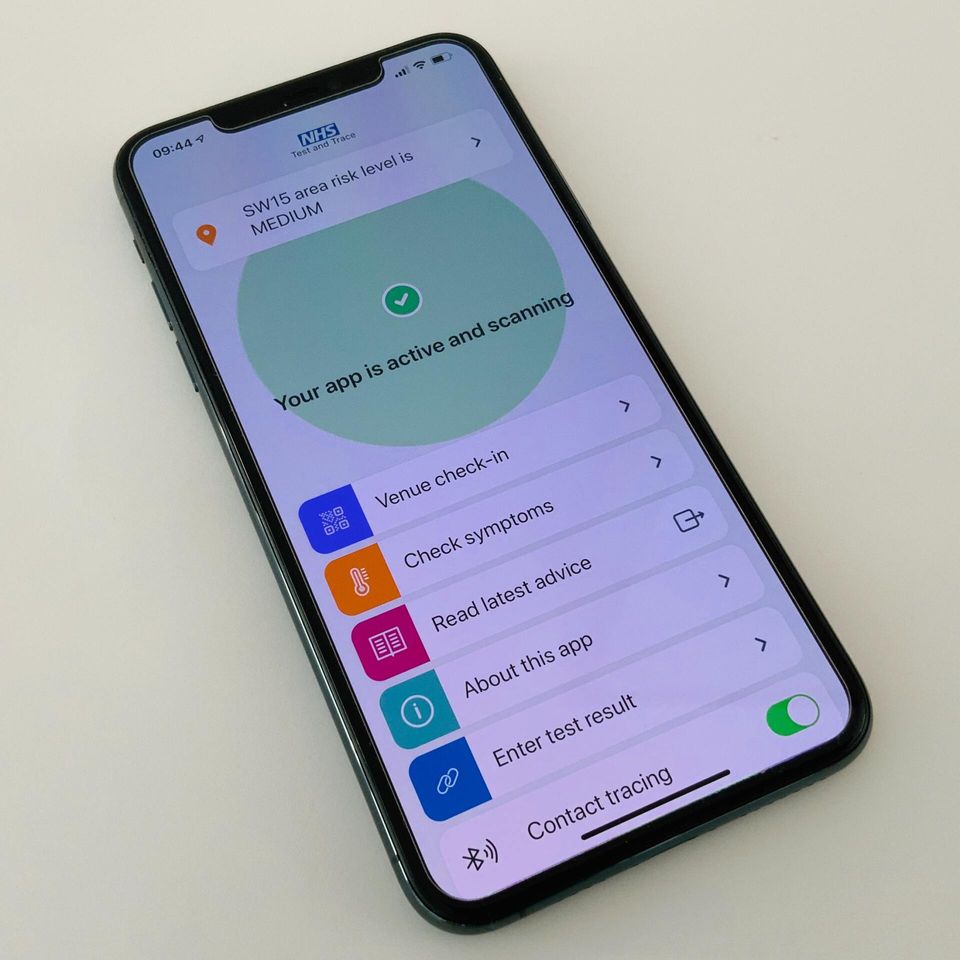COVID -19
Corona Contact-Tracing App
By Lucas Schönborn
October 10, 2020
The novel Coronavirus is continuing to spread around the world with enormous speed. According to the John Hopkins-University, the milestone of 10 million infected people globally has been reached. It remains crucial to trace cases comprehensively and to prevent the further spread of the disease. Basically, this can be done in two ways. The first “non-technological” approach was initially adopted during the beginning of the pandemic. Health officials have to ask every infected manually with whom they had contact with and to impose quarantine when necessary. This requires a lot of resources and is not always reliable, since people don’t know e.g. with whom they sat in the subway.
Another approach is to trace potentially infected individuals through a Corona tracing app. Many people carry their smartphone all the time. Thus, they could be used to trace people they have maybe infected with just little effort, once the app is available. Nonetheless, with regard to data protection this is a very controversial topic (for very good reasons since the collected data are highly personal and very sensitive).
There are two approaches for this app with regard to the storage of the collected data. The strength and weaknesses of the
different approaches, namely the central and decentralised approach, will be discussed in this article. Mainly the approach of the French and German government will be compared.
Anyhow, both got some points in common. A cryptographed ID is created temporarily and it is not possible to relate that ID directly to an individual user. The app registers via Bluetooth when a smartphone user stayed within the infectious proximity for a considerable amount of time. Both approaches change the ID on a regular basis (every 10-20 minutes) to make it more difficult to create a movement profile. Nonetheless, the apps differ significantly with regard to the storage and communication of data.
Centralized Approach
The French App “StopCovid” stores the data of all smartphone users centrally on a server. If the central server were to be hacked, the hacker would gain a huge amount of data. It is potentially possible to create a comprehensive movement profile since the contacts are centrally stored. Furthermore, the admin of this server is very powerful as well. Assuming the government just has the intention to protect their citizens, this issue could be neglected. But what about countries like Hungary, where the authoritarian tendencies are not even denied anymore by the government? This potential harm to civil and privacy rights is enormous.
Nonetheless, there are also arguments in favor of the central approach. Scientists can use the available data in order to find out more regarding the precise spread and movement of the virus. Additionally, the centralized approach tends to be more reliable and effective than the decentralized.
Decentralized approach
The second approach was adopted e.g. by the German government. Decentrality means that the data are not stored centrally on a server but locally on the smartphones instead. Unlike the central approach which stores both, the ID and the contacts of their users centrally, just the mobile phones track the contacts and do not transfer the information to a server. If the server was hacked, the hacker would just gain cryptographed IDs. Hence, since the actual tracing is made on the smartphone itself and not on a central server, the data are protected better. Consequently, in terms of data protection and privacy the second approach is definitely preferable. Although the individual smartphone could be hacked as well and is not 100% safe, the risk is far smaller and the data is protected more comprehensively. Anyway, there can never be absolute protection.
Nevertheless the significant disadvantage that the decentralized app is possibly not as efficient has to be considered as well. But, since the app was released a couple of weeks ago, it is not clear how effective it is. Most experts suggest that the loss of efficiency is not significant. The download numbers on Germany just exceeded 14 Million (29 June 2020) and we will see in the future how effective it is. Most experts suggest that although a majority of people will not have downloaded the app (even roughly 70% have downloaded WhatsApp in Germany), there is consensus that also just a few million downloads will have an impact towards returning to normal life as well. But without any doubt, it is a crucial step towards preventing the spread of the disease and to return to normal life.
To sum it up, in general there is a centralized and a decentralized approach when it comes to the Corona tracing app. Both approaches are not completely safe. Nevertheless, the decentralized approach provides a far better protection and it is less likely that it will be hacked. Although it requires more resources and possibly works less efficiently, it is definitely preferable in order to protect privacy and data, which is crucial.
Read More


Watch Our Episodes





